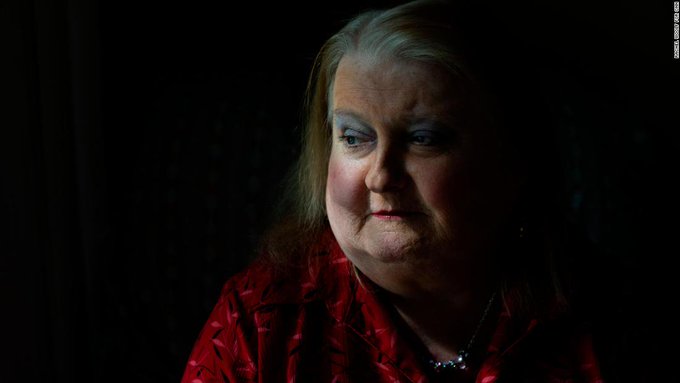
Aimee Stephens is a transgender woman whose lawsuit against a former employer might be reviewed by the Supreme Court.
If this does happen, Stephens’ case might become a landmark case for lesbian, gay and transgender rights in the office space.
Here’s what you need to know.
1. Stephens Was Fired After She Emailed Her Company Telling Them She Intended to Transition
According to CNN, Stephens was fired after she sent an email to her employer, R&G and G&R Harris Funeral Homes, a family-owned business in Detroit. Stephens was subsequently told by her boss, a devout Christian, that “her situation was not going to work out,” according to court documents.
Stephens was offered a severance package, but she refused it.
2. Leading up to Her Firing, Stephens Had Six Years of Positive Employee Reviews to Her Name
CNN reports that Stephens had six years of positive employee reviews and regular raise bumps to her name prior to being fired. Stephens began working in funeral homes in her 20s, helping to make sure that the deceased were shown in their best light for services and funerals.
Of her employer’s response to her transitioning, Stephens said to CNN, “I always knew there was a chance they would go off the deep end, but I was really hoping they would be more tolerant of my decision. Losing my job was like a punch in the gut.”
3. Stephens’ Wife, Donna, Took on Extra Jobs to Support Them in the Wake of the Firing
After Stephens lost her job, her health began to deteriorate due to kidney failure and she was unable to find other work. Stephens’ wife, Donna, who supported her throughout her transition, took on extra jobs, according to CNN. The couple also sold their van, a piano, and their camper in order to make ends meet.
Stephens decided to take her case public after a near-death experience in 2017. “What they did to me was wrong, and I won’t be the last,” Stephens said to CNN. “It’s important that we treat one another as we would want to be treated. Religious freedom doesn’t give you the right to override other people’s freedoms.”
4. Thomas Rost, Stephens’ Former Employer, Testified That He Fired Stephens Because ‘She Wanted to Dress as a Woman’
In a deposition, Rost reportedly testified that he did in fact fire Stephens as a direct result of her transition. Specifically, he was concerned about the funeral home dress code, and how Stephens’ transition would affect restroom etiquette.
Rost claimed that as a christian, he believed that “sex is immutable,” and that Stephens’ “proposal” would be breaking the dress code, because a man would be dressing as a woman, rather than wearing the required suit and tie that men needed. What’s more, Rost was allegedly concerned about Stephens sharing a bathroom with customers.
Ross said he believed “he ‘would be violating God’s commands’ if a male representative of Harris Homes presented himself as a woman while representing the company.”
5. 16 States Have Filed a Brief Asking the Supreme Court to Support the Decision of the Funeral Home
According to CNN, 16 states have filed a brief as of August 23, asking the Supreme Court to “restore the balance of power in our federal system.” The brief says,
